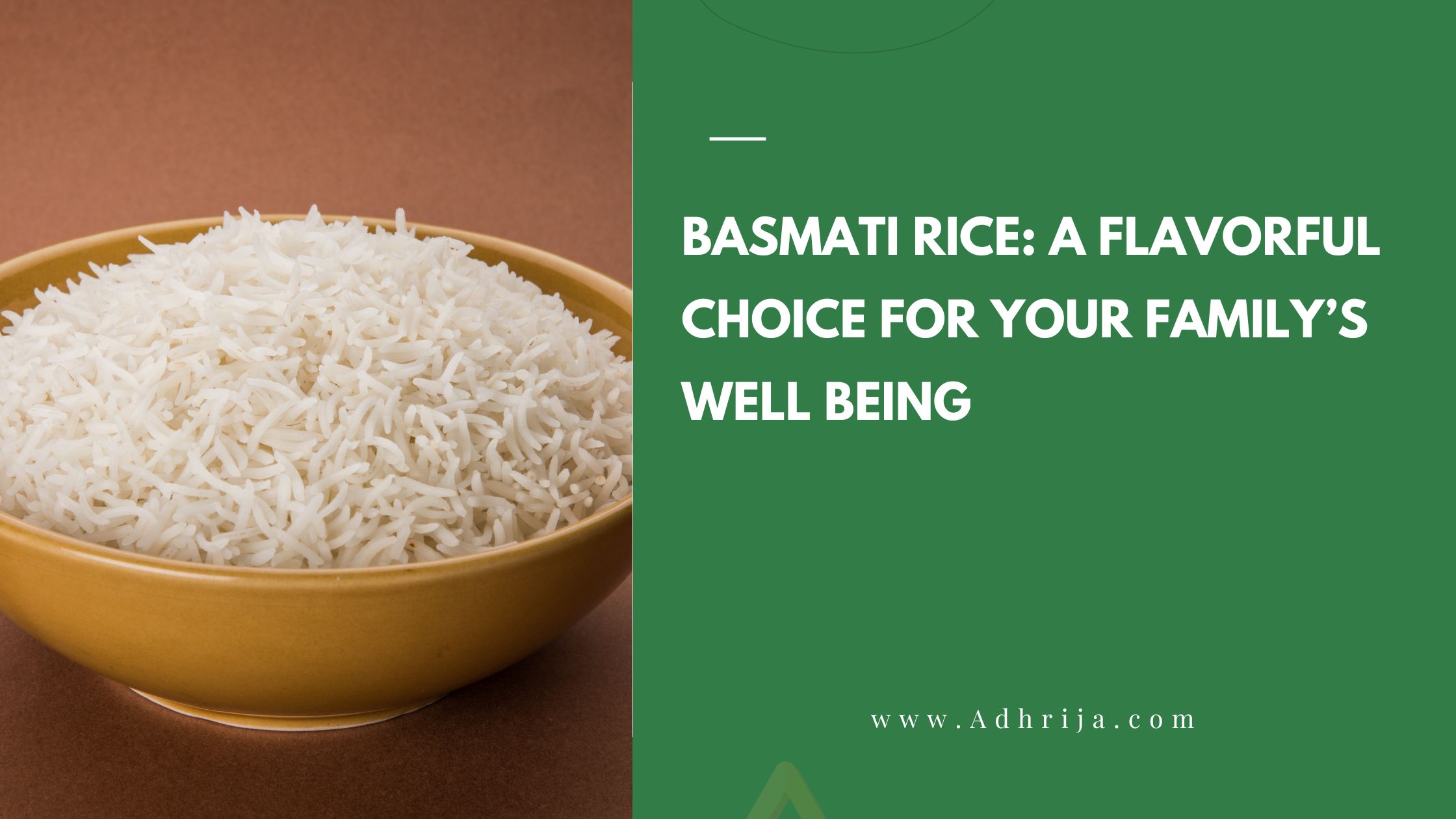Is Basmati Rice Gluten Free?

Yes, Basmati rice is gluten-free. This popular long-grain rice variety does not contain gluten naturally, making it a safe option for those with celiac disease or gluten sensitivity. Basmati rice is known for its aromatic flavor and fluffy texture when cooked. It is available in both white and brown varieties, with brown Basmati rice offering more fiber and a stronger fragrance. Whether you’re following a gluten-free diet or simply looking for a delicious rice option, Basmati rice is a great choice that you can enjoy without worry.
Is Basmati Rice Gluten Free: Understanding Celiac Disease
Understanding Celiac Disease is crucial when deciphering the gluten content of Basmati rice. Celiac disease is an autoimmune disorder triggered by the ingestion of gluten, a protein found in wheat, barley, and rye. Individuals with celiac disease must strictly adhere to a gluten-free diet to avoid intestinal damage and other health complications. Fortunately, Basmati rice is a safe option for those with celiac disease as it naturally does not contain gluten. By choosing Basmati rice, individuals with celiac disease can enjoy a delicious and gluten-free staple in their diet without any concerns or adverse health effects.
Gluten Content In Basmati Rice: Facts And Misconceptions
When it comes to the gluten content in Basmati rice, it’s important to separate the facts from the misconceptions. The fact is that Basmati rice is naturally gluten-free, making it a safe choice for individuals with celiac disease or gluten intolerance. However, there may be some misconceptions surrounding the gluten content in Basmati rice, often stemming from confusion with other types of rice or cross-contamination during processing. It’s crucial to choose certified gluten-free Basmati rice and read labels carefully to ensure that you’re getting a truly gluten-free product. By dispelling these misconceptions, you can confidently enjoy the delicious and gluten-free benefits of Basmati rice in your diet.
Basmati Rice Vs. Regular Rice

In comparison to regular rice, Basmati rice has its unique characteristics that set it apart. Basmati rice is a long-grain rice variety that has a distinct fragrance, fluffy texture, and delicate flavor. On the other hand, regular rice encompasses a wide range of varieties such as short-grain, medium-grain, and long-grain rice. Regular rice lacks the aromatic quality that makes Basmati rice so special. When it comes to gluten content, both Basmati rice and regular rice are naturally gluten-free, making them suitable options for individuals with gluten intolerances or celiac disease.
Differences In Gluten Content Between Basmati And Regular Rice
Basmati rice and regular rice differ in their gluten content. While both varieties are naturally gluten-free, there may be slight variations in their gluten levels. Basmati rice, known for its delicate flavor and aroma, is often considered lower in gluten compared to regular rice. This is because the milling process for Basmati rice removes a larger portion of the outer bran layer, where gluten proteins are found. Regular rice, on the other hand, may have a slightly higher gluten content due to the presence of the whole grain. However, it’s important to note that these differences in gluten content are minimal and should not be a concern for those following a gluten-free diet.
Nutritional Value And Gluten Protein In Basmati Rice
Basmati rice not only offers a delicate flavor and aromatic experience but also provides several essential nutrients. This gluten-free grain is a good source of carbohydrates, which are essential for energy production. It is low in fat and cholesterol, making it a healthy choice for those looking to maintain a balanced diet. Basmati rice also contains small amounts of protein, fiber, and essential minerals such as iron and magnesium. However, it is important to note that basmati rice does not contain gluten protein, making it a safe and nutritious option for individuals with gluten sensitivities or celiac disease.
Basmati Rice Varieties And Processing

Basmati rice comes in various varieties, each with its own unique characteristics and flavors. Some popular basmati rice varieties include Basmati 370, Basmati 386, and Basmati 515. These varieties are known for their long grains, delicate aroma, and fluffy texture when cooked.
When it comes to processing, basmati rice goes through a specific milling process to ensure its quality and taste. This process involves removing the husk, bran, and germ layers, leaving behind the starchy endosperm. This results in a polished and refined rice grain, which further enhances its appearance and cooking properties.
It’s important to note that the processing of basmati rice does not introduce any gluten protein into the grains. Therefore, all varieties of basmati rice, regardless of the processing method, remain gluten-free and safe for individuals with gluten sensitivities.
Gluten Free Certification Of Basmati Rice Products
Basmati rice products that are marketed as “gluten-free” often undergo a certification process to ensure their safety for individuals with gluten sensitivities. This certification involves rigorous testing and verification by reputable organizations to confirm that the rice products contain less than 20 parts per million (ppm) of gluten, which is the threshold considered safe for gluten-free consumption. Look for gluten-free certification labels on basmati rice packaging, such as the gluten-free symbol provided by organizations like the Gluten Intolerance Group (GIG). These labels provide assurance and peace of mind to individuals following a gluten-free diet.
Effect Of Processing On Basmati Rice’s Gluten Content
The processing of basmati rice plays a crucial role in determining its gluten content. During the milling and polishing process, the outer layers of the rice grain, which may have come into contact with gluten-containing grains, are removed. This helps to minimize the risk of cross-contamination and reduce the gluten content in the final product. However, it is important to note that processing alone may not completely eliminate gluten from the rice. Therefore, individuals with gluten sensitivities should still opt for certified gluten-free basmati rice to ensure their safety and peace of mind.
Benefits Of Choosing Basmati Rice

Choosing basmati rice comes with several benefits. Firstly, basmati rice has a low glycemic index, which means it doesn’t cause a rapid spike in blood sugar levels. This makes it suitable for individuals with diabetes or those trying to manage their blood sugar levels. Additionally, basmati rice is rich in nutrients such as fiber, vitamins, and minerals, providing essential nourishment for overall health. The long grain and fluffy texture of basmati rice make it a versatile ingredient that can be used in a wide range of dishes, from biryanis to pilafs. Its aromatic flavor adds an extra dimension to any meal, making it a favorite choice for many. So, whether you’re looking for a nutritious component for your meal or simply want to enjoy the delicious taste, choosing basmati rice is a wise and enjoyable decision.
Gluten Free Diet And Basmati Rice Health Benefits
A gluten-free diet has gained popularity in recent years due to its potential health benefits. Basmati rice, being naturally gluten-free, is an excellent choice for individuals following this diet. By incorporating basmati rice into their meals, people can enjoy numerous health benefits. Firstly, basmati rice is rich in carbohydrates, providing sustained energy throughout the day. It also contains fiber, which aids in digestion and helps maintain a healthy weight. Additionally, basmati rice is low in fat and cholesterol, making it heart-healthy. Overall, including basmati rice in a gluten-free diet can contribute to improved overall health and well-being.
Cooking Tips And Recipes With Basmati Rice
Cooking with Basmati rice is not only easy but also allows for a wide variety of delicious dishes. Here are some cooking tips to help you make the most out of your Basmati rice. First, rinse the rice thoroughly before cooking to remove any excess starch. For a fluffy texture, use a ratio of 1:1.5 (one cup of rice to one and a half cups of water) when cooking on the stovetop. Adding a squeeze of lemon juice or a teaspoon of oil can enhance the flavor. Now, let’s explore some mouthwatering recipes featuring Basmati rice.
Common Misconceptions About Basmati Rice And Gluten

There are several common misconceptions when it comes to Basmati rice and gluten. One misconception is that all rice contains gluten. However, this is not true. Rice is naturally gluten-free, including Basmati rice. Another misconception is that Basmati rice is not safe for individuals with celiac disease or gluten sensitivity. As long as Basmati rice is not cross-contaminated during processing or cooking, it can be enjoyed by those following a gluten-free diet. It is important to read labels and choose certified gluten-free Basmati rice to ensure its safety.
Myths Debunked: Basmati Rice And Gluten Allergies
One common myth surrounding basmati rice is that it is not safe for individuals with celiac disease or gluten allergies. However, this is not true. Basmati rice is naturally gluten-free, making it a suitable choice for those with gluten sensitivities. As long as the rice is not cross-contaminated during processing or cooking, it can be enjoyed without any issues. It is important to read labels and choose certified gluten-free basmati rice to ensure its safety. Don’t let misconceptions prevent you from enjoying this delicious and nutritious grain.
Consumer Awareness And Labels For Gluten Free Basmati Rice
Consumer awareness plays a crucial role in ensuring that individuals with gluten sensitivities make informed choices when selecting basmati rice. To aid consumers in identifying gluten-free options, food manufacturers often provide labels on their packaging indicating that the product is certified gluten-free. These labels serve as a helpful guide for those seeking gluten-free options, providing reassurance that the rice has undergone testing and meets the necessary standards. It is essential for consumers to read and understand these labels, as they provide valuable information about the safety and suitability of the product for individuals with gluten allergies.
Conclusion

In conclusion, basmati rice is a gluten-free option that can be enjoyed by individuals with gluten sensitivities. Its low gluten content and processing methods make it suitable for those following a gluten-free diet. However, it is important to read labels and choose certified gluten-free basmati rice to ensure safety. Basmati rice not only provides a delicious and aromatic addition to meals but also offers numerous health benefits. By incorporating basmati rice into your diet, you can enjoy a gluten-free option without compromising on taste or nutrition.
Basmati Rice As A Gluten Free Option
Basmati rice is an excellent gluten-free option for individuals with gluten sensitivities. Its naturally low gluten content, combined with proper processing and handling, makes it safe for those following a gluten-free diet. Choosing certified gluten-free basmati rice ensures that it has undergone rigorous testing and meets the industry standards for gluten-free products. Basmati rice not only provides a delicious and aromatic addition to meals, but it also offers numerous health benefits. By incorporating basmati rice into their diet, individuals can enjoy a gluten-free option without compromising on taste or nutrition.
Summary Of Gluten Content In Basmati Rice And Final Thoughts
Basmati rice is naturally low in gluten, making it a safe choice for individuals following a gluten-free diet. While the gluten content in basmati rice may vary, studies have shown that it generally falls below the threshold for gluten-free classification. By choosing certified gluten-free basmati rice, individuals can ensure they are consuming a product that has undergone rigorous testing and meets industry standards. Incorporating basmati rice into meals not only provides a delicious and aromatic addition but also offers numerous health benefits. Basmati rice is a great gluten-free option for those seeking to maintain a gluten-free lifestyle without sacrificing taste or nutrition.
FAQ About Basmati Rice’s Gluten Content
Q: Is Basmati Rice gluten-free?
A: Yes, Basmati Rice is naturally gluten-free, making it a safe choice for individuals with gluten intolerance or celiac disease.
Q: Can Basmati Rice contain gluten?
A: Pure Basmati Rice does not contain gluten. However, cross-contamination may occur during processing, packaging, or handling, so it’s essential to check for gluten-free certifications on the packaging.
Q: How can one ensure Basmati Rice is gluten-free?
A: To ensure Basmati Rice is gluten-free, look for certifications like “gluten-free” or “certified gluten-free” on the packaging. Additionally, buying from reputable brands known for their gluten-free products is recommended.
Q: Are there any health benefits to consuming Basmati Rice?
A: Basmati Rice is a good source of energy, low in fat, and cholesterol-free. Additionally, it has a low to medium glycemic index, making it a suitable choice for managing blood sugar levels.
Q: Can individuals with gluten sensitivity or celiac disease safely consume Basmati Rice?
A: Yes, Basmati Rice is a suitable option for individuals with gluten sensitivity or celiac disease due to its gluten-free nature. It can be a staple in their gluten-free diet.

The Stone’s Sports Grill and Bar was Established on December 1, 2021. The Stone is a Sequel to another restaurant called Cornerstone’s First Edition in Tucumcari, NM. This particular venue is located on the Southeast side of Colorado Springs. The Stone is Wide Open. We have a large dance floor, multi-level stage, pool room, (5) dart boards, and a bar with a large selection of wine spirits and brews.